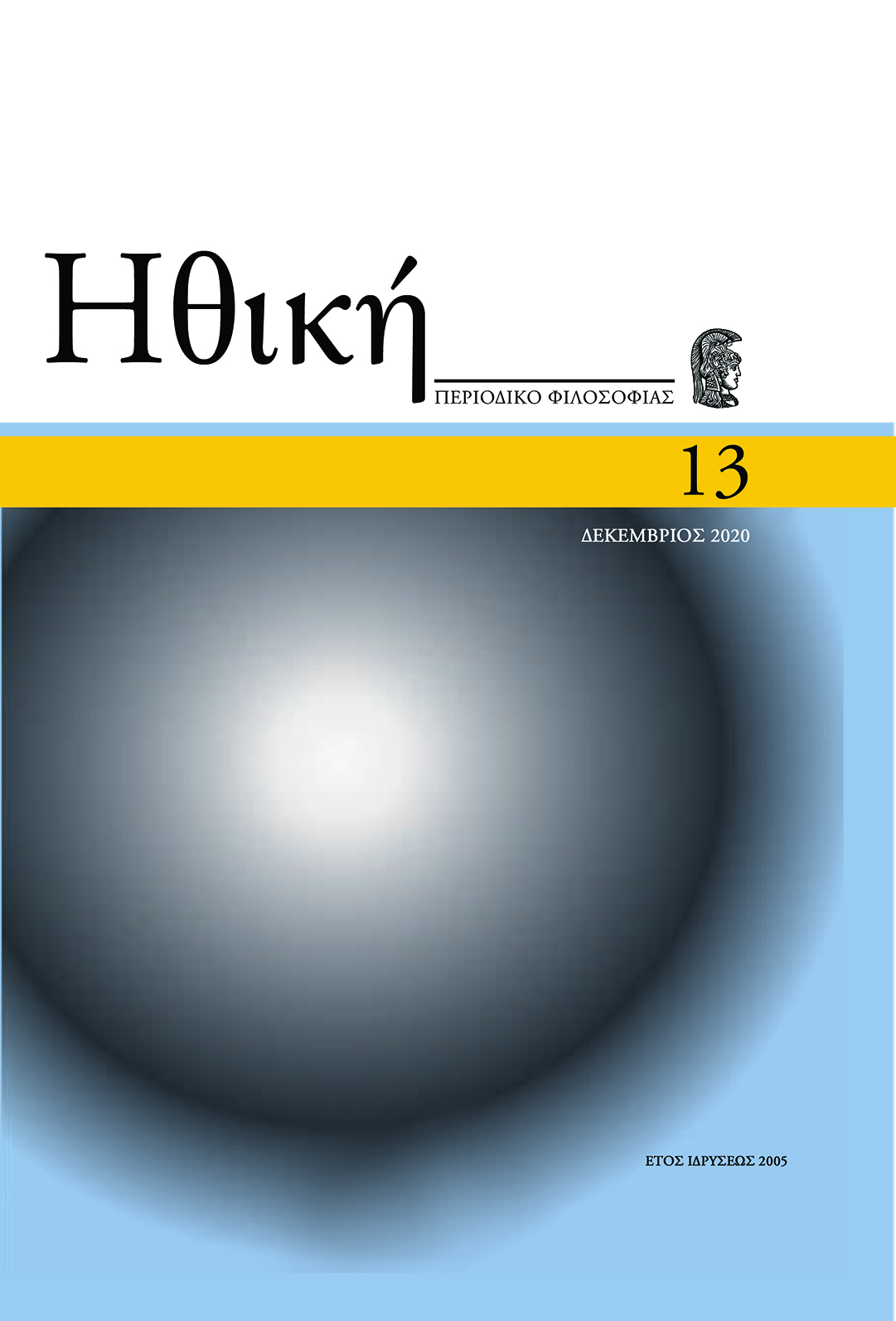The problem of priority of principles in bioethics. Can the Kantian classification in perfect and imperfect duties help us?

Περίληψη
Principlism has dominated contemporary Anglophone practical ethics often regarded as the most important methodological conception. Young biomedical scientists grow up learning to apply the “four principles”, an approach originally introduced in the USA by Beauchamp & Childress but soon accepted also in the UK with the support of Professor Raanan Gillon. The central idea of the method involves, first identifying the relevant among the four moral principle(s), (beneficence, non maleficence, respect for autonomy and justice) that is (are) connected with a specific moral dilemma. Then, one follows procedures of balancing, specification and deductive application, as a bridge between the moral dilemma and the four principles. Some attention is paid while balancing, to consequentialist considerations, and to other ethically significant concepts as the virtues and the emotions, but only incidentally. What is central in Beauchamp & Childress’s principlism is the adoption of normative insights of common morality, holding the position of a theoretical justification for the methodological reasoning which will determine the solution of a specific moral problem.
The main ambition of the four principles approach and its main virtue is the clarity of the method and consequently the ability to become comprehensive and easily applied. There are certain problems though in applying the method. Here, we are going to investigate the problem of relative priority of principles, i.e. which principle overrides the other when two or more of them are in conflict, seeking help by the Kantian division, in perfect and imperfect duties. But we must first answer the question: Is the four principles approach, a method of moral objectivism as Beauchamp & Childress claim, or is it a method of moral relativism, as it is often argued by some of their critics? Only if our answer to the objectivity question is positive, can the main issue of priority be addressed, because an attempt at a determinate ordering wouldn’t mean anything in a relativist frame.
Λεπτομέρειες άρθρου
- Πώς να δημιουργήσετε Αναφορές
-
Boutlas, G. (2021). The problem of priority of principles in bioethics. Can the Kantian classification in perfect and imperfect duties help us?. Ηθική. Περιοδικό φιλοσοφίας, (13), 13–21. https://doi.org/10.12681/ethiki.25963
- Τεύχος
- Αρ. 13 (2020)
- Ενότητα
- Άρθρα
- Οι Συγγραφείς διατηρούν τα Πνευματικά Δικαιώματα και χορηγούν στο περιοδικό το δικαίωμα της πρώτης δημοσίευσης ενώ ταυτόχρονα τα πνευματικά δικαιώματα της εργασίας προστατεύονται σύμφωνα με την Creative Commons Attribution License που επιτρέπει σε τρίτους - αποδέκτες της άδειας να χρησιμοποιούν την εργασία όπως θέλουν με την προϋπόθεση της διατήρησης των διατυπώσεων που προβλέπονται στην άδεια σχετικά με την αναφορά στον αρχικό δημιουργό και την αρχική δημοσίευση σε αυτό το περιοδικό.
- Οι Συγγραφείς μπορούν να συνάπτουν ξεχωριστές, και πρόσθετες συμβάσεις και συμφωνίες για την μη αποκλειστική διανομή της εργασίας όπως δημοσιεύτηκε στο περιοδικό αυτό (π.χ. κατάθεση σε ένα ακαδημαϊκό καταθετήριο ή δημοσίευση σε ένα βιβλίο), με την προϋπόθεση της αναγνώρισης και την αναφοράς της πρώτης δημοσίευσης σε αυτό το περιοδικό.
- Το περιοδικό επιτρέπει και ενθαρρύνει τους Συγγραφείς να καταθέτουν τις εργασίες τους μέσω διαδικτύου (π.χ. σε ένα ακαδημαϊκό καταθετήριο ή στους προσωπικές τους ιστοσελίδες) πριν και μετά από τις διαδικασίες της δημοσίευσης, καθώς αυτό μπορεί να οδηγήσει σε παραγωγική ανταλλαγή ιδεών και σκέψεων καθώς επίσης και σε γρηγορότερη και μεγαλύτερη χρήση και ευρετηρίαση της δημοσιευμένης εργασίας (See The Effect of Open Access).


